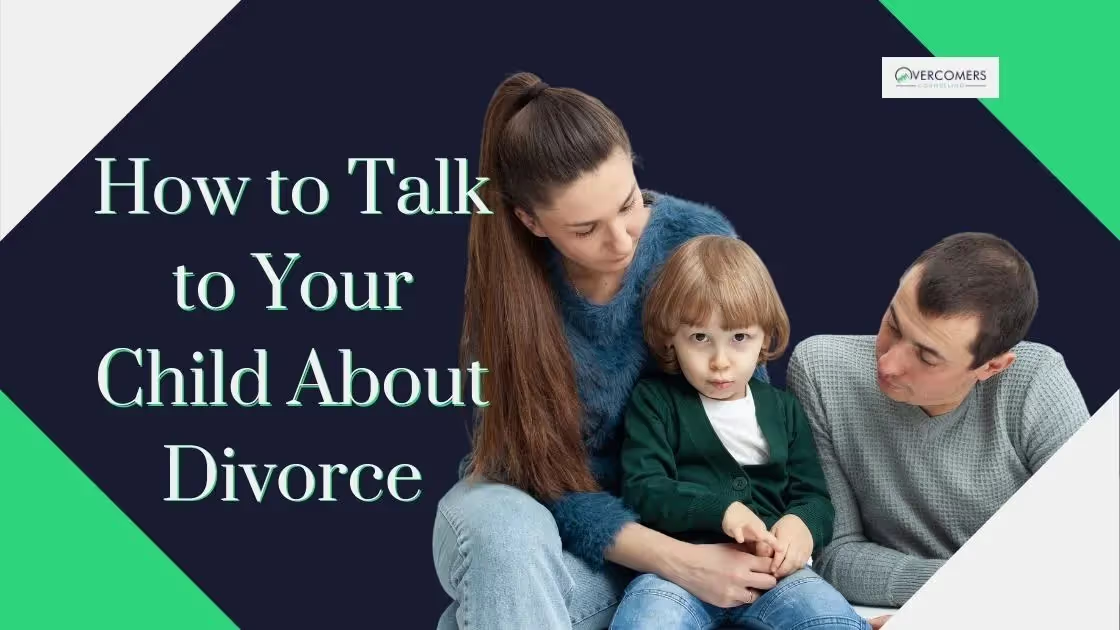It's important to answer any questions your child has in a way that they can understand.Try to avoid using technical terms or jargon, and be patient if they...

It's important to answer any questions your child has in a way that they can understand.
Try to avoid using technical terms or jargon, and be patient if they ask the same question multiple times.
If you're not sure how to answer a question, say so, and offer to find out the answer together.
Providing clear answers to the best of your ability is one good step toward learning how to talk to your child about divorce.

It's natural for parents to want to protect their children from hurt and anxiety, but the sooner you talk about the divorce, the better.
Children can sense when something is wrong, and they may feel scared or anxious if they don't know what is happening.
Be honest with your child. Explain what is happening in simple terms that they can understand.
We know that there are many different ways parents can be addressed, for this example we'll use Mommy and Daddy, but please fill in how they refer to you as you see fit.
For example, you might say to your child:
Try to avoid talking about divorce in negative terms.
For example, instead of saying "Mommy and Daddy are getting a divorce because we just can't get along", try something like "Mommy and Daddy have decided to live apart because we think it will be better for everyone".
One of the most important things you can do is reassure your child that the divorce is not their fault.
It's common for children to blame themselves when their parents get divorced, so it's important to make it clear that this is not the case.
You might say something like:
It's important to remind your children that this is an adult decision and that they are not responsible.
Talking to kids about divorce can bring many negative feelings in both older kids and young children.
Reassure them they are not responsible.
It's important to let your child know that they can come to you with any questions or concerns they have.
You might say something like:
Remind your child that they are not alone. Children need to know that they are not the only ones going through this.
You might say something like:
Giving your child a safe chance to express their feelings is an important part of learning how to talk to your child about divorce.

Finally, offer reassurance and support to your child. Let them know that you love them and that you will always be there for them.
You might say something like:
Children react to divorce in different ways. Some may seem unaffected, while others may show signs of distress.
It's important to be patient and understanding with your child and to offer them reassurance and support.
If you're worried about how your child is dealing with the divorce, talk to their doctor or a counselor.
They can help you prepare and give you more guidance on how to talk to your child about divorce.
Children can sense when their parents are sad or angry, even if they don't say anything.
It's important to spend time with your child, even when you're feeling sad or angry so that they know you still love them and care about them.
If you need to take a break, let your child know that you'll be back soon.
It's important to try and not say negative things about the other parent in front of your children.
Even if you're angry with the other parent, try to speak calmly and respectfully.
Your child should feel like they can love and respect both of their parents, even if you're not together.
Divorce can be a very disruptive time for children, so it's important to try to keep their routine as normal as possible.
If you have custody of your child, make sure they still have time to see the other parent and that they stick to their usual bedtime and school routine.
If you're finding it difficult to cope with the divorce yourself, or if your child is having difficulty adjusting, seek professional help.
There are many resources available to help you through this difficult time.
The above content is meant to provide general information and should not be taken as legal advice or medical advice.
For specific legal advice, please consult a lawyer. For medical advice please seek a professional therapist.
Divorce can be a difficult and confusing time for children and other family members, but there are things you can do to help them through it.
Learning how to talk to your child about the divorce may be a challenge, but get to it as soon as possible, explain that it was not their fault, and answer any questions they have.
Offer reassurance and support, and try to keep their routine as normal as possible.
Seek professional help if you or your child is struggling to cope with the divorce.
You can teach your child persistence by modeling the behavior yourself, encouraging them to take risks, setting goals and tracking progress, praising effort, and providing support and guidance.